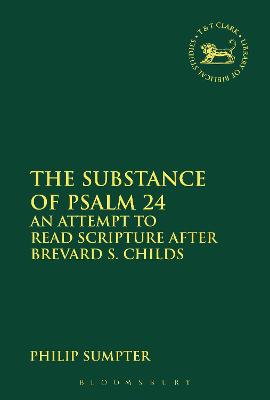Criminal Practice
1 total work
This book contributes to the theory and practice of Biblical interpretation by engaging in an interpretation of Psalm 24 inspired by a particular understanding of Brevard Childs’ “canonical approach”: an understanding centred on the concept of “theological substance.”
Sumpter shows how the literary, historical, and theological dimensions of Psalm 24 cohere into a single vision by reading the text according to the previously discussed dialectic. An initial “synchronic” analysis of the psalm’s poetic structure related to a “diachronic” reconstruction of the tradition history that lead to the final form. The question is then posed concerning the primary forces at work in this history of composition, a question which leads to reflection on the Trinity, first in se and then pro nobis. This latter dimension takes us back to the text, as its “Davidic” nature is further analysed in relation to the books of Samuel, the Psalter, and Isaiah. Finally, Patristic exegesis is turned to for further stimulation concerning the mysterious subject matter of the text.
Sumpter shows how the literary, historical, and theological dimensions of Psalm 24 cohere into a single vision by reading the text according to the previously discussed dialectic. An initial “synchronic” analysis of the psalm’s poetic structure related to a “diachronic” reconstruction of the tradition history that lead to the final form. The question is then posed concerning the primary forces at work in this history of composition, a question which leads to reflection on the Trinity, first in se and then pro nobis. This latter dimension takes us back to the text, as its “Davidic” nature is further analysed in relation to the books of Samuel, the Psalter, and Isaiah. Finally, Patristic exegesis is turned to for further stimulation concerning the mysterious subject matter of the text.
